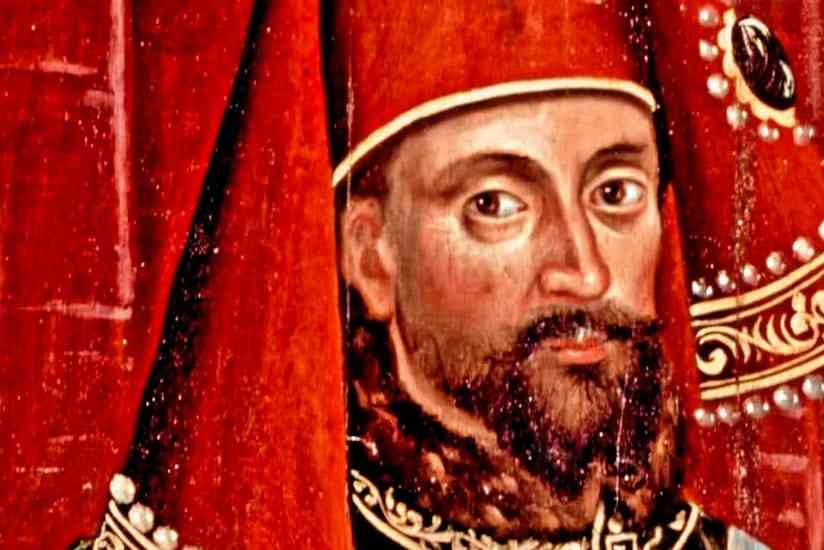Henry IV, a name shared by prominent monarchs in both English and French history, holds a unique place in the annals of European leadership. In England, Henry IV, the first king of the Lancastrian line, reigned from 1399 to 1413. Meanwhile, in France, Henry IV, often referred to as Henry of Navarre, reigned from 1589 to 1610 and is celebrated for bringing an end to the French Wars of Religion. Both figures exemplified leadership during turbulent times, leaving legacies that resonate even today. This article will delve into the lives, achievements, and challenges of these monarchs while focusing on their enduring impact on their respective nations.
Henry IV of England: The Architect of Lancastrian Power

Early Life and Rise to Power
Born in April 1367, Henry Bolingbroke was the son of John of Gaunt, Duke of Lancaster, and a grandson of Edward III. His early life was marked by privilege and education, as befitting a member of the Plantagenet dynasty. However, his path to the throne was anything but straightforward.
Henry’s ascent began with political conflict. In 1398, King Richard II exiled Henry following a dispute with Thomas de Mowbray, Duke of Norfolk. When John of Gaunt died in 1399, Richard seized Henry’s inheritance, igniting a crisis that would alter the course of English history. Henry returned to England with a small force, ostensibly to reclaim his lands, but quickly garnered widespread support. By the end of 1399, Richard II had been deposed, and Henry Bolingbroke was crowned King Henry IV, marking the start of the Lancastrian dynasty.
Reign and Challenges
Henry IV’s reign was fraught with challenges, including rebellions, financial difficulties, and legitimacy issues. His deposition of Richard II left lingering doubts about the sanctity of his rule, a concern that haunted his reign.
- Rebellions: Henry faced multiple uprisings, the most notable being the Percy rebellion, led by Henry “Hotspur” Percy, a former ally. The Battle of Shrewsbury in 1403 was a critical moment, with Henry’s forces emerging victorious but at great cost.
- Financial Struggles: The kingdom’s finances were in disarray, and Henry’s attempts to stabilize the treasury often faced resistance from Parliament. The heavy costs of war, combined with his need to reward supporters, strained royal resources.
- Health Issues: In his later years, Henry suffered from a debilitating illness, often thought to be a form of leprosy or a severe skin condition. These health challenges affected his ability to govern effectively.
Despite these difficulties, Henry IV’s reign laid the groundwork for the successes of his son, Henry V. His ability to maintain power amidst adversity demonstrated his resilience and political acumen.
Policies and Cultural Contributions
Henry IV also enacted significant policies that strengthened the monarchy. He worked to centralize authority, ensuring the crown’s dominance over feudal lords. He supported cultural initiatives and religious institutions, though his reign lacked the grand artistic achievements of later monarchs. His commitment to justice and governance earned him a measure of respect, even among critics.
Henry IV of France: The Peacemaker and Reformer

Early Life and Ascension
Born on December 13, 1553, in Pau, Henry of Navarre was a key figure during one of France’s most tumultuous periods. As a Huguenot (French Protestant) and a member of the Bourbon dynasty, he was deeply embroiled in the French Wars of Religion. His marriage to Margaret of Valois in 1572 was intended to reconcile Catholics and Protestants but instead led to the infamous St. Bartholomew’s Day Massacre.
Henry’s path to the French throne was fraught with obstacles. As the heir presumptive following the death of Henry III, he faced fierce opposition from the Catholic League. After years of conflict, Henry’s pragmatic decision to convert to Catholicism in 1593, encapsulated in the famous phrase “Paris is worth a Mass,” paved the way for his coronation in 1594.
Reign and Achievements
Henry IV’s reign is often hailed as a golden era for France, marked by relative stability, economic recovery, and religious reconciliation. His leadership style and reforms earned him the enduring title of “Good King Henry.”
- Religious Tolerance: The Edict of Nantes in 1598 was one of Henry’s most significant achievements. It granted substantial rights to Huguenots, effectively ending the French Wars of Religion. While it did not fully resolve religious tensions, it established a framework for coexistence.
- Economic Reforms: Under Henry’s rule, France experienced economic revival. He implemented policies to promote agriculture, improve infrastructure, and encourage trade. His finance minister, Maximilien de Béthune, Duke of Sully, played a crucial role in these efforts.
- Urban Development: Henry’s contributions to urban development, including the construction of the Pont Neuf in Paris and the expansion of the Louvre, reflected his vision for a modern and unified France.
- Military Reforms: Henry IV also focused on military efficiency, ensuring that France could defend its borders and project power abroad. His efforts strengthened the state’s ability to maintain order and deter foreign threats.
Assassination and Legacy
Henry IV’s reign ended tragically in 1610 when he was assassinated by François Ravaillac, a Catholic fanatic. His death left a void in French leadership, but his legacy endured. The stability he brought to France paved the way for the reign of his son, Louis XIII, and the subsequent rise of absolutism under Louis XIV.
Comparing the Legacies of Henry IV

Leadership in Turbulent Times
Both Henry IV of England and Henry IV of France ruled during periods of profound instability. In England, Henry IV’s deposition of Richard II and his subsequent challenges underscored the fragility of monarchy. In France, Henry IV’s navigation of the religious conflicts demonstrated his skill as a unifier.
Religious Policies
While Henry IV of France is celebrated for his religious tolerance, Henry IV of England’s reign was less focused on religious reform. However, both monarchs understood the importance of securing the loyalty of diverse factions within their realms.
Economic and Administrative Reforms
The two monarchs shared an interest in strengthening their states through economic and administrative measures. Henry IV of England’s focus on stabilizing royal finances was echoed by Henry IV of France’s efforts to promote agriculture and trade.
Enduring Influence
Henry IV of England’s establishment of the Lancastrian dynasty set the stage for the Wars of the Roses, which ultimately shaped English political history. In contrast, Henry IV of France’s efforts to strengthen the French state contributed to the centralization of power that defined the Bourbon monarchy.
Conclusion
Henry IV remains a significant figure in both English and French history. While their contexts and challenges differed, both monarchs exemplified resilience, pragmatism, and a commitment to their nations. Henry IV of England navigated the treacherous waters of political rebellion and financial instability, ensuring the survival of the Lancastrian line. Meanwhile, Henry IV of France’s vision for a unified and prosperous nation helped heal the wounds of religious conflict and laid the foundation for France’s future greatness.
Their legacies continue to inspire and inform discussions about leadership, statecraft, and the complexities of governing in times of crisis. By examining the lives of these two Henry IVs, we gain a deeper understanding of the enduring challenges and opportunities of monarchy in medieval and early modern Europe.

